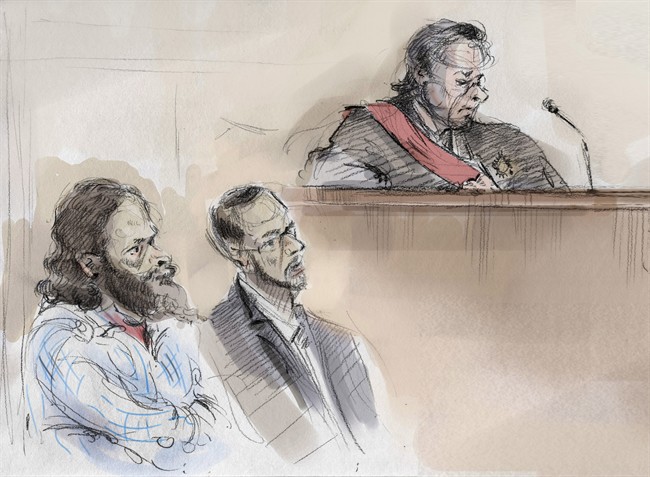TORONTO – A sentencing hearing continues today for two men convicted of terrorism in a case involving a plot to derail a passenger train travelling between Canada and the U.S.

Raed Jaser and his co-accused, Chiheb Esseghaier, were found guilty in March of a terror-related conspiracy to commit murder, which carries a sentence of up to life in prison.
A 12-member jury also found the men guilty of six other terror-related charges between them.
On Monday, a psychologist who conducted an assessment of Jaser described him as a desperate drug addict who conned people to get high.
Dr. Jess Ghannam concluded Jaser did not have consistent radical Islamic ideology, but adopted a persona as a pious Muslim to trick members of that community.
A Crown attorney has challenged Ghannam’s objectivity in the case, accusing him of jumping to conclusions about Jaser’s drug addiction.
During Jaser and Esseghaier’s trial, court heard that an undercover FBI agent gained the men’s trust and surreptitiously recorded their conversations, which made up the bulk of the evidence in the case.
The two were recorded speaking about alleged terror plots they would conduct in retaliation for Canada’s military actions in Muslim countries.
In one of the recordings, Jaser was heard saying “everyone is a target” and that he wanted “the whole country to burn.”
Esseghaier, who is a Tunisian national, refused to participate in his trial because he wanted to be judged under the rules of the Qur’an.
Jaser’s defence lawyer argued his client was only faking interest in a terror plot as part of an elaborate con to extract money from Esseghaier and the undercover agent.

Comments